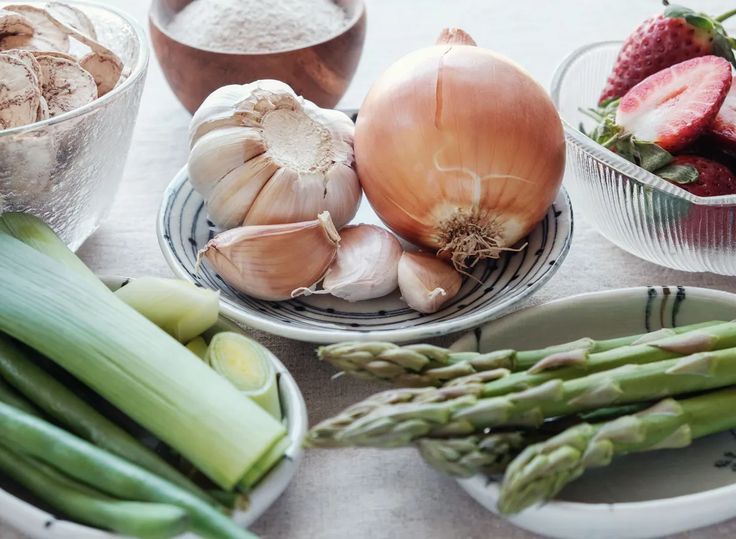Introduction
Did you know that you have trillions of bacteria living in your gut? This collection of bacteria is known as your gut microbiome, and it plays a crucial role in your overall health and well-being. While some bacteria are harmful, many are beneficial and contribute to a strong immune system, optimal digestion, and even mental clarity.

One of the best ways to cultivate a thriving gut microbiome is by nourishing it with prebiotic foods. Unlike probiotics, which introduce beneficial bacteria into your gut, prebiotics act as food for the existing good bacteria already present. Think of them as fertilizer for your gut garden!
What are Prebiotic Foods?
Prebiotics are types of dietary fiber that your body can't digest. However, these fibers act as food for the beneficial bacteria in your gut, helping them flourish and multiply.
The Benefits of a Prebiotic-Rich Diet
Including prebiotic-rich foods in your diet can lead to a variety of health benefits, including:
- Improved Digestion: Prebiotics can help alleviate digestive issues like constipation, bloating, and gas by promoting the growth of good bacteria and improving bowel regularity.
- Enhanced Immune Function: A significant portion of your immune system resides in your gut. Prebiotics help strengthen your gut barrier, which in turn supports a robust immune response.
- Increased Nutrient Absorption: Certain prebiotics can enhance the absorption of essential minerals like calcium and magnesium.
- Weight Management: Some studies suggest that prebiotics may help regulate appetite and promote a healthy weight.
- Mental Well-being: Emerging research points to a fascinating connection between gut health and mental health. Prebiotics may play a role in reducing stress and improving mood.
Top Prebiotic Foods to Add to Your Plate
Ready to give your gut some love? Here are some of the top prebiotic-rich foods to incorporate into your diet:
- Garlic: This pungent ingredient is not only flavorful but also a good source of the prebiotic inulin.
- Onions: Like garlic, onions contain inulin and fructooligosaccharides (FOS), which can feed beneficial gut bacteria.
- Bananas: Especially slightly green bananas, are a good source of resistant starch, a type of prebiotic fiber.
- Apples: Enjoy an apple a day for its pectin content, a prebiotic fiber that promotes gut health.
- Asparagus: This spring vegetable contains inulin and FOS, which can help stimulate the growth of beneficial bacteria.
- Leeks: Similar to onions and garlic, leeks offer a good dose of prebiotics.
Incorporating Prebiotics into Your Diet
Adding prebiotic foods to your meals doesn't have to be complicated. Here are some easy ways to enjoy their benefits:
- Start slowly: If you're not used to eating a lot of fiber, start by gradually increasing your intake of prebiotic foods to avoid digestive discomfort.
- Enjoy a variety: Aim for a diverse range of prebiotic foods to support a wide array of beneficial gut bacteria.
- Get creative in the kitchen: Experiment with different recipes and ways to include prebiotics in your diet. Add sliced bananas to your yogurt, toss asparagus in your stir-fries, or snack on apple slices with almond butter.

.jpg)